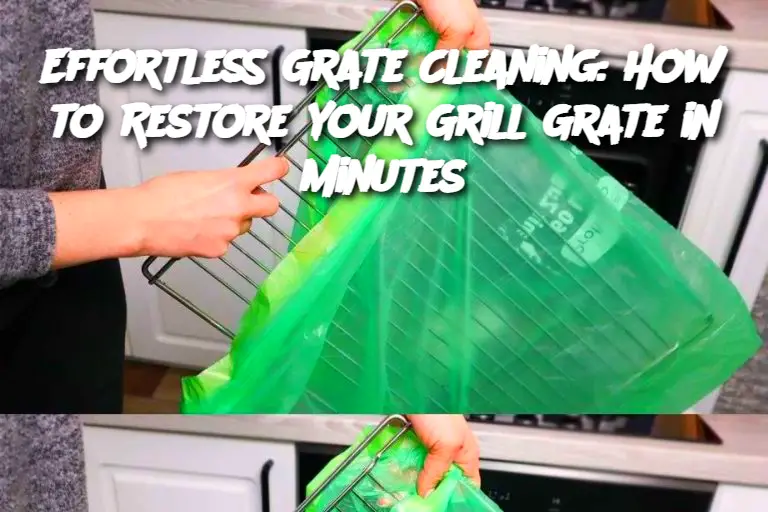ADVERTISEMENT
If you don't have ammonia, you can use a combination of baking soda and vinegar as a more natural alternative. The process is similar, though you may need to use a bit more elbow grease to wipe away the grime.
For lighter cleaning, especially after a few short grill sessions, you might simply use this method for an hour or two instead of waiting overnight.
Frequently Asked Questions:
Is this cleaning method safe for all grill grates? Yes, this method is safe for most metal grill grates, including those made of cast iron, stainless steel, and porcelain-coated grates. However, always check the manufacturer's instructions for care and cleaning tips to avoid any damage.
Can I use this method indoors? It's recommended to use this method outdoors or in a well-ventilated area, as ammonia fumes can be harsh to inhale.
How often should I clean my grill grate using this method? The frequency of cleaning depends on how often you use your grill. For regular use, you can clean your grate every few months, or more often if needed. For infrequent use, a deep cleaning once a year should suffice.
Can I reuse the plastic bag for future cleanings? Yes, the bag can be reused as long as it remains intact. Just make sure to wash it thoroughly between uses.
Is there a way to prevent grease buildup on my grill grate? To reduce grease buildup, consider oiling your grill grates before cooking and avoid overcooking fatty foods that can drip excessively.
By following this simple and effective method, you can keep your grill grates looking fresh and clean with minimal effort. Happy grilling!
ADVERTISEMENT
